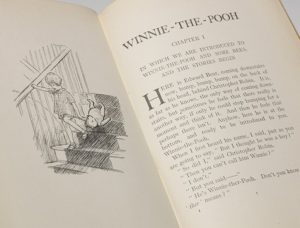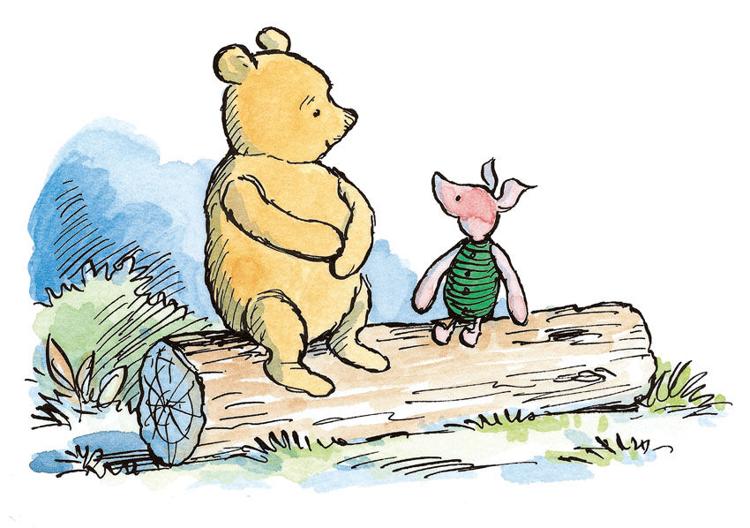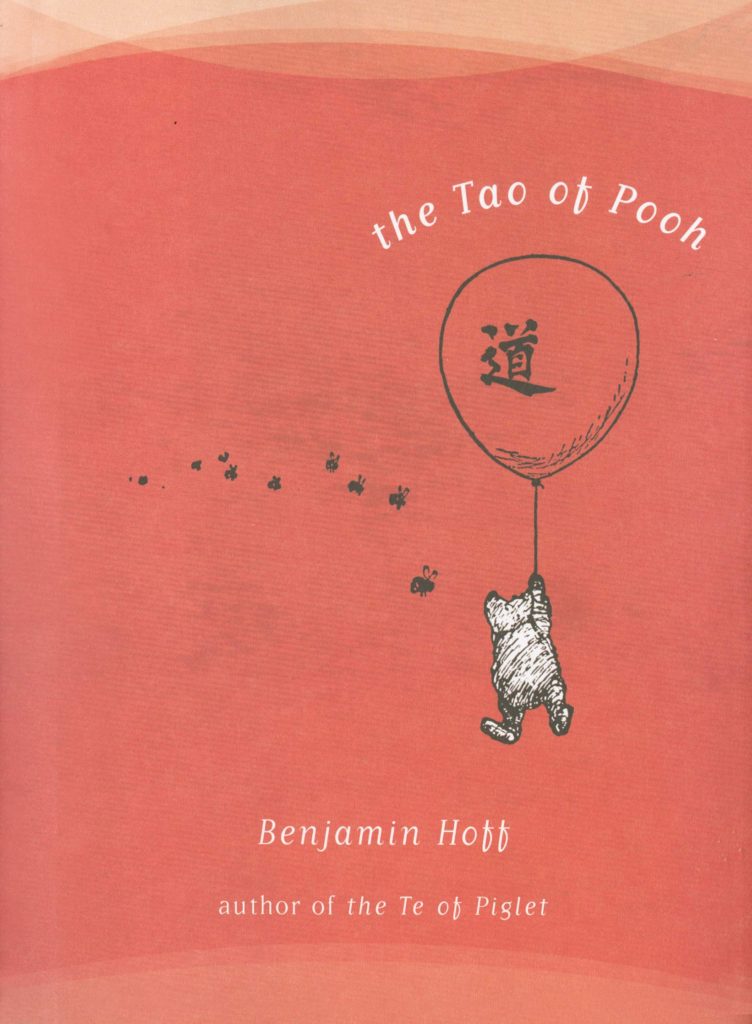
My Winnie-the-Pooh Experience
7 years ago I read Winnie-the-Pooh for the first time. I don’t know why it took me so long to read the books, but now I love the stories and adventures of Christopher Robin and his little friends in the 100-acre wood. The kids and I often share favorite parts and allude to characters and scenes from the book.

The following is a post I wrote soon after I read the book along with The Tao of Pooh by Benjamin Hoff.
Please share comment below with your feelings about Winnie-the-Pooh.
************************************************************************I’ve never liked Winnie-the-Pooh. I always thought he was boring and dumb. But a new book caused me to see him in a different light. In The Tao of Pooh, Benjamin Hoff compares characters from AA Milne’s books to explain Taoism. Here are some things I learned. . .

Simple-minded does not equal stupid.
The Tao principle of the Uncarved Block means that things in their original simplicity contain natural power, natural beauty, and natural function. Pooh is the uncarved block. He is simple-minded (not stupid), he enjoys the simple things in life and he can do things spontaneously. The concept of the uncarved block brings me back to my questions about peace. Pooh seems to be at peace. Enjoying the simple things and doing things impulsively are what make him that way.
Everything has its own place and function.
Understanding your Inner Nature helps you know where you belong, what you are good at, and your limitations. It starts with “recognizing who we are, what we’ve got to work with, and what works best for us.” Pooh shares a rhyme to help explain the principle.
How can you get very far,
If you don’t know Who You Are?
How can you do what you ought,
If you don’t know What You’ve Got?
And if you don’t know Which To Do
Of all the things in front of you,
Then what you’ll have when you are through
Is just a mess without a clue
Of all the best that can come true
If you know What and Which and Who.
Understanding my Inner Nature is difficult for me. I usually rely on others to tell me who I am. I’ve recently had some opportunities that have forced me to do my own looking and I’m learning a lot. I know who I am, a little about what I’ve got to work with, and more about what works best for me.
Not only do I have my Inner Nature, but so does everything else. “When we learn to work with our own Inner Nature, and with the natural laws operating around us. . .we work with the natural order of things and operate on the principle of minimal effort. . .Tao doesn’t force or interfere with things, but lets them work in their own way, to produce results naturally. Then whatever needs to be done is done.” Sometimes I can do this and sometimes I can’t. I know that there are certain things around the house that need to be done and if I don’t do them they don’t get done. But, there are things that I can let “happen.” Like letting the kids fix meals or not stressing about other’s responsibilities. I think there is a fine line, but understanding what things can “happen” can bring peace.
The key to wisdom, happiness and truth is Nothing.
“An Empty sort of mind is valuable for finding pearls and tails and things because it can see what’s in front of it. An Overstuffed mind is unable to. While the Clear mind listens to a bird singing, the Stuffed-Full-of-Knowledge-and-Cleverness mind wonders what kind of bird is singing. The more Stuffed Up it is, the less it can hear through its own ears and see through its own eyes.”
Sometimes I feel like the Stuffed Up one–I hear a bird and wonder what kind; I spout off useless information, but have nothing to back it up with; I need to always be doing. Instead I should follow the advise of Lao-tse: “To attain knowledge, add things every day. To attain wisdom, remove things every day.” I was recently complaining about how busy we are, how we always have so much to do. Maybe I need to remove some things from our schedule.
Did I learn anything about Taoism from reading this book? A little. I think the best explanation came from the forward. Benjamin Hoff is talking to a colleague trying to convince him that Pooh is one of the “Great Masters of Wisdom” by reading him a section of AA Milne’s books. The unbeliever argues, “That’s not about Taoism. . .It’s about this dumpy little bear that wanders around asking silly questions, making up songs, and going through all kinds of adventures, without ever accumulating any amount of intellectual knowledge or losing his simpleminded sort of happiness. That’s what it’s about.” To which Benjamin Hoff replies, “Same thing.”
************************************************************************


